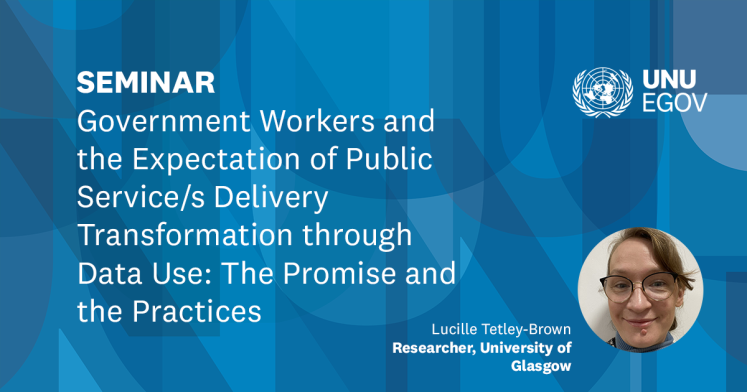Abstract
Presenting her recently completed doctoral research (2024), from the University of Glasgow’s Sociology department, Lucille Tetley-Brown shares insights about ‘data work culture’ at local government level. This culture focuses on varied data uses, differentiating between preparatory and substantive data work, for reporting or intelligence, to interrogate expectations of data and its role in public service/s delivery.
By focusing on varied data uses, alongside the varied users thereof (as governmental ‘data professionals’), Lucille’s research addresses the underattended to concept of data itself within e-Government. She applies a relational ontology that shows how data work is intrinsically entwined with those who make and / or interpret data and seek to apply data-derived findings to achieve the goal of better government.
The research seminar will define six expectations from data – ‘the Promise’ – to help achieve public service/s delivery transformation. Additionally, Lucille articulates the actual data use practices within local government, from her empirical work across three of the largest municipal areas in Scotland (Glasgow, Edinburgh and North Lanarkshire). Her research is supported by a predominately qualitative analysis from fifty-five research interviews, complimented by a short survey, and extensive policy review.
Overall, the thesis argument highlights an oversight of the vital interpretative, translating effort by internal service specialists, who speak for the data they seek to utilise in their digital government transformation efforts, and do so in normative, political contexts. The seminar will offer recommendations for practitioners, in the form of three critical lessons and five actions to strengthen data work culture across the full public service delivery ecosystem.
Biography
Lucille is a data work culture specialist and qualified sustainability professional. Her research focuses on data's varied uses and institutional decision-making, related to public service delivery transformation via digital technologies and new ways of working, particularly at the local government level. Lucille holds a law degree from the University of Oxford, an MSc in Environmental Studies and Sustainability Science from Sweden's Lund University, and a PhD in Sociology from the University of Glasgow in Scotland.




